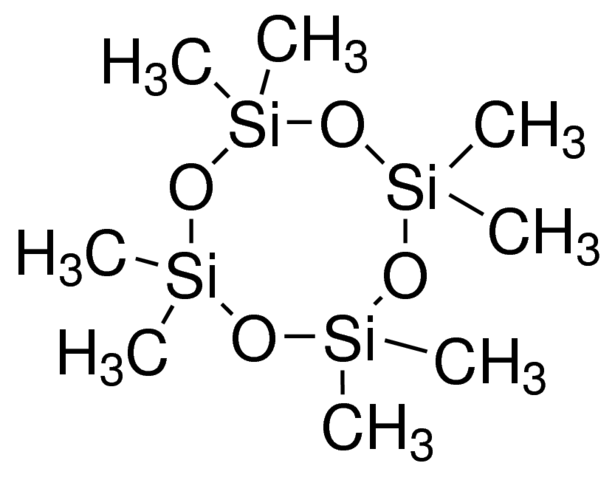
Octamethylcyclotetrasiloxane (commonly known as D4, chemical formula C8H24O4Si4) is mainly used as a siloxane ingredient in cosmetics and is widely used in skin care and cosmetic products. Its main characteristics include good volatility, lubricity, water resistance and affinity to the skin. It is often used as a lubricant and brightener in base ingredients or formulas.
Application:
1. Improve skin feel: D4 has excellent volatility and can evaporate quickly without leaving a greasy feeling. Therefore, it is often used in essences, lotions, creams, foundations and other products to improve skin feel.
2. Water resistance and durability: It can provide products with waterproof and sweat-proof effects, so it is also used in cosmetics such as sunscreens and mascara.
3. Increase gloss and smoothness: Due to its unique molecular structure, octamethylcyclotetrasiloxane can form a smooth film on the skin surface to enhance the gloss of the product.
4. Improved spreadability: In cosmetics such as foundation, cream, and body lotion, D4 can improve the spreadability and uniformity of the product.
Safety assessment:
Regarding the safety of D4, many international cosmetic regulatory agencies such as the US FDA and the European Cosmetic Committee (CCL) have conducted detailed research and evaluation on it.
1. Skin irritation: Generally speaking, when the concentration of D4 in cosmetics is controlled within a safe range, users will not experience severe skin irritation. Studies have shown that the skin absorption rate of D4 is very low, and it usually does not cause long-term accumulation or damage to the skin.
2. Environmental impact: D4 is a volatile organic compound (VOC), which may have an impact on the environment after volatilization into the air. Especially when used on a large scale, if it is not properly handled, it may cause pollution to water bodies. Therefore, some countries or regions regulate its emissions.
3. Carcinogenicity or other long-term risks: Some studies have pointed out that long-term and large-scale use of D4 may pose potential long-term risks to the human body, especially in high concentrations and long-term exposure. However, the concentration in cosmetics is usually low, and the doses approved by regulatory agencies for use in cosmetics are generally considered safe.
4. Laws and regulations: In some regions, such as the European Union, the use of D4 is more strictly restricted. The EU has set strict limits on the amount of this ingredient used to reduce potential environmental risks.
To learn more, click here
https://www.siliconematerial.net/